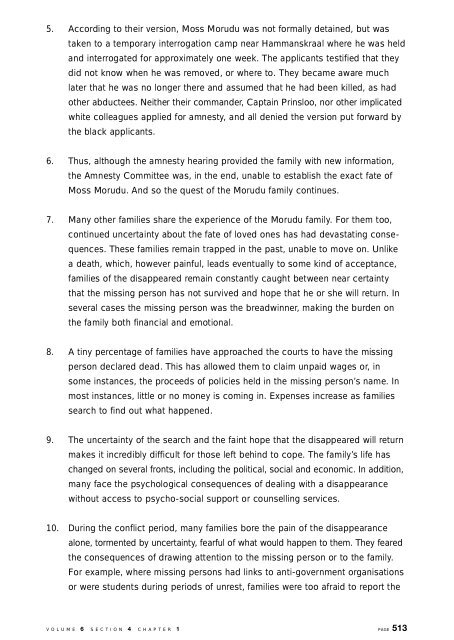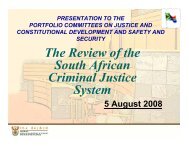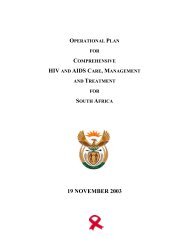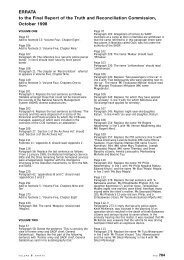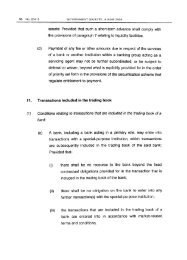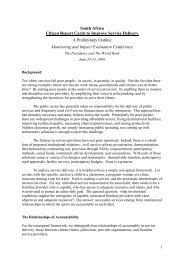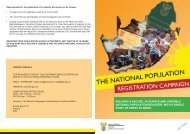Abductions,Disappearances and Missing Persons - South African ...
Abductions,Disappearances and Missing Persons - South African ...
Abductions,Disappearances and Missing Persons - South African ...
You also want an ePaper? Increase the reach of your titles
YUMPU automatically turns print PDFs into web optimized ePapers that Google loves.
5. A c c o rding to their version, Moss Morudu was not formally detained, but was<br />
taken to a temporary interrogation camp near Hammanskraal where he was held<br />
<strong>and</strong> interrogated for approximately one week. The applicants testified that they<br />
did not know when he was removed, or where to. They became aware much<br />
later that he was no longer there <strong>and</strong> assumed that he had been killed, as had<br />
other abductees. Neither their comm<strong>and</strong>er, Captain Prinsloo, nor other implicated<br />
white colleagues applied for amnesty, <strong>and</strong> all denied the version put forward by<br />
the black applicants.<br />
6. Thus, although the amnesty hearing provided the family with new information,<br />
the Amnesty Committee was, in the end, unable to establish the exact fate of<br />
Moss Morudu. And so the quest of the Morudu family continues.<br />
7. Many other families share the experience of the Morudu family. For them too,<br />
continued uncertainty about the fate of loved ones has had devastating consequences.<br />
These families remain trapped in the past, unable to move on. Unlike<br />
a death, which, however painful, leads eventually to some kind of acceptance,<br />
families of the disappeared remain constantly caught between near certainty<br />
that the missing person has not survived <strong>and</strong> hope that he or she will re t u rn. In<br />
several cases the missing person was the bre a d w i n n e r, making the burden on<br />
the family both financial <strong>and</strong> emotional.<br />
8. A tiny percentage of families have approached the courts to have the missing<br />
person declared dead. This has allowed them to claim unpaid wages or, in<br />
some instances, the proceeds of policies held in the missing person’s name. In<br />
most instances, little or no money is coming in. Expenses increase as families<br />
s e a rch to find out what happened.<br />
9. The uncertainty of the search <strong>and</strong> the faint hope that the disappeared will re t u rn<br />
makes it incredibly difficult for those left behind to cope. The family’s life has<br />
changed on several fronts, including the political, social <strong>and</strong> economic. In addition,<br />
many face the psychological consequences of dealing with a disappearance<br />
without access to psycho-social support or counselling services.<br />
10. During the conflict period, many families bore the pain of the disappearance<br />
alone, tormented by uncertainty, fearful of what would happen to them. They feare d<br />
the consequences of drawing attention to the missing person or to the family.<br />
For example, where missing persons had links to anti-government org a n i s a t i o n s<br />
or were students during periods of unrest, families were too afraid to report the<br />
V O L U M E 6 S E C T I O N 4 C H A P T E R 1 P A G E 5 1 3


